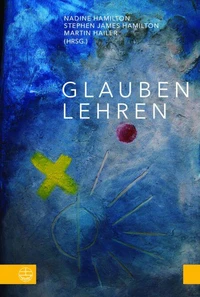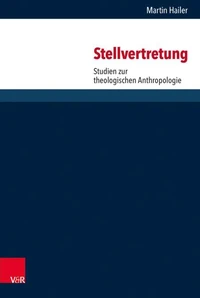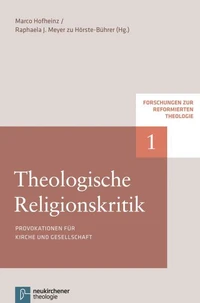Ökumenische Hermeneutik. Stand der Dinge, Defizite, Perspektiven. In memoriam Dietrich Ritschl 1929–2018
Par : , ,Formats :
Disponible dans votre compte client Decitre ou Furet du Nord dès validation de votre commande. Le format PDF est :
- Compatible avec une lecture sur My Vivlio (smartphone, tablette, ordinateur)
- Compatible avec une lecture sur liseuses Vivlio
- Pour les liseuses autres que Vivlio, vous devez utiliser le logiciel Adobe Digital Edition. Non compatible avec la lecture sur les liseuses Kindle, Remarkable et Sony
 , qui est-ce ?
, qui est-ce ?Notre partenaire de plateforme de lecture numérique où vous retrouverez l'ensemble de vos ebooks gratuitement
Pour en savoir plus sur nos ebooks, consultez notre aide en ligne ici
- Nombre de pages336
- FormatPDF
- ISBN978-3-374-07408-2
- EAN9783374074082
- Date de parution23/06/2023
- Protection num.Digital Watermarking
- Taille1 Mo
- Infos supplémentairespdf
- ÉditeurEvangelische Verlagsanstalt
Résumé
Ökumenische Hermeneutik wurde und wird sowohl durch programmatische Konzepte wie etwa »Einheit in versöhnter Verschiedenheit« , »Ökumene der Profile« oder »geistliche Ökumene« als auch durch das Ziel der sichtbaren Einheit oder Versöhnung orientiert. Braucht es solche Konzepte oder sind sie eher hinderlich? Die in diesem Band versammelten Beiträge vermessen und reflektieren den Stand der interkonfessionellen und interreligiösen Ökumene.
Dabei werden zum einen die Chancen und Grenzen der Lehr- und Konsensökumene und das hermeneutische Potenzial des Postkolonialismus bedacht, zum anderen theologische Perspektiven im jüdisch-christlichen und im muslimisch-christlichen Dialog erörtert. Der Band dokumentiert die akademische Feier und das Symposium zum Gedenken an Dietrich Ritschl (1929-2018), der von 1983 bis 1996 das Ökumenische Institut der Universität Heidelberg geleitet hat. Mit Beiträgen von Arne Bachmann, Fernando Enns, Uwe Gräbe, Martin Hailer, Stephen J.
Hamilton, Elisabeth Hartlieb, Achim Hofmann, Gesine von Kloeden, Ulrike Link-Wieczorek, Elisabeth Maikranz, Barbara Meyer, Friederike Nüssel, Rudolf von Sinner, Thomas Wabel, Jonathan Wieder und Wolfram Weiße. [Ecumenical Hermeneutics. Latest Developments, Shortcomings, and Perspectives In memoriam Dietrich Ritschl 1929-2018] Ecumenical hermeneutics has been oriented both by programmatic concepts such as »unity in reconciled diversity« , »ecumenism of profiles« or »spiritual ecumenism« as well as by the goal of visible unity or reconciliation.
The question remains as to whether these concepts continue to be helpful ecumenically or whether they are ultimately a hindrance to ecumenical progress. The contributions gathered in this volume survey and reflect on the current state of ecumenical and interreligious dialogue. On the one hand, they consider opportunities and limitations of ecumenical conversations on divisive doctrinal issues as well as the hermeneutical potential of post-colonial studies; on the other hand, the essays treat various theological perspectives in Jewish-Christian and Muslim-Christian dialogue.
This volume documents the academic celebration and symposium in memory of Dietrich Ritschl (1929-2018), who served as director of the Ecumenical Institute at Heidelberg University from 1983 to 1996.
Dabei werden zum einen die Chancen und Grenzen der Lehr- und Konsensökumene und das hermeneutische Potenzial des Postkolonialismus bedacht, zum anderen theologische Perspektiven im jüdisch-christlichen und im muslimisch-christlichen Dialog erörtert. Der Band dokumentiert die akademische Feier und das Symposium zum Gedenken an Dietrich Ritschl (1929-2018), der von 1983 bis 1996 das Ökumenische Institut der Universität Heidelberg geleitet hat. Mit Beiträgen von Arne Bachmann, Fernando Enns, Uwe Gräbe, Martin Hailer, Stephen J.
Hamilton, Elisabeth Hartlieb, Achim Hofmann, Gesine von Kloeden, Ulrike Link-Wieczorek, Elisabeth Maikranz, Barbara Meyer, Friederike Nüssel, Rudolf von Sinner, Thomas Wabel, Jonathan Wieder und Wolfram Weiße. [Ecumenical Hermeneutics. Latest Developments, Shortcomings, and Perspectives In memoriam Dietrich Ritschl 1929-2018] Ecumenical hermeneutics has been oriented both by programmatic concepts such as »unity in reconciled diversity« , »ecumenism of profiles« or »spiritual ecumenism« as well as by the goal of visible unity or reconciliation.
The question remains as to whether these concepts continue to be helpful ecumenically or whether they are ultimately a hindrance to ecumenical progress. The contributions gathered in this volume survey and reflect on the current state of ecumenical and interreligious dialogue. On the one hand, they consider opportunities and limitations of ecumenical conversations on divisive doctrinal issues as well as the hermeneutical potential of post-colonial studies; on the other hand, the essays treat various theological perspectives in Jewish-Christian and Muslim-Christian dialogue.
This volume documents the academic celebration and symposium in memory of Dietrich Ritschl (1929-2018), who served as director of the Ecumenical Institute at Heidelberg University from 1983 to 1996.
Ökumenische Hermeneutik wurde und wird sowohl durch programmatische Konzepte wie etwa »Einheit in versöhnter Verschiedenheit« , »Ökumene der Profile« oder »geistliche Ökumene« als auch durch das Ziel der sichtbaren Einheit oder Versöhnung orientiert. Braucht es solche Konzepte oder sind sie eher hinderlich? Die in diesem Band versammelten Beiträge vermessen und reflektieren den Stand der interkonfessionellen und interreligiösen Ökumene.
Dabei werden zum einen die Chancen und Grenzen der Lehr- und Konsensökumene und das hermeneutische Potenzial des Postkolonialismus bedacht, zum anderen theologische Perspektiven im jüdisch-christlichen und im muslimisch-christlichen Dialog erörtert. Der Band dokumentiert die akademische Feier und das Symposium zum Gedenken an Dietrich Ritschl (1929-2018), der von 1983 bis 1996 das Ökumenische Institut der Universität Heidelberg geleitet hat. Mit Beiträgen von Arne Bachmann, Fernando Enns, Uwe Gräbe, Martin Hailer, Stephen J.
Hamilton, Elisabeth Hartlieb, Achim Hofmann, Gesine von Kloeden, Ulrike Link-Wieczorek, Elisabeth Maikranz, Barbara Meyer, Friederike Nüssel, Rudolf von Sinner, Thomas Wabel, Jonathan Wieder und Wolfram Weiße. [Ecumenical Hermeneutics. Latest Developments, Shortcomings, and Perspectives In memoriam Dietrich Ritschl 1929-2018] Ecumenical hermeneutics has been oriented both by programmatic concepts such as »unity in reconciled diversity« , »ecumenism of profiles« or »spiritual ecumenism« as well as by the goal of visible unity or reconciliation.
The question remains as to whether these concepts continue to be helpful ecumenically or whether they are ultimately a hindrance to ecumenical progress. The contributions gathered in this volume survey and reflect on the current state of ecumenical and interreligious dialogue. On the one hand, they consider opportunities and limitations of ecumenical conversations on divisive doctrinal issues as well as the hermeneutical potential of post-colonial studies; on the other hand, the essays treat various theological perspectives in Jewish-Christian and Muslim-Christian dialogue.
This volume documents the academic celebration and symposium in memory of Dietrich Ritschl (1929-2018), who served as director of the Ecumenical Institute at Heidelberg University from 1983 to 1996.
Dabei werden zum einen die Chancen und Grenzen der Lehr- und Konsensökumene und das hermeneutische Potenzial des Postkolonialismus bedacht, zum anderen theologische Perspektiven im jüdisch-christlichen und im muslimisch-christlichen Dialog erörtert. Der Band dokumentiert die akademische Feier und das Symposium zum Gedenken an Dietrich Ritschl (1929-2018), der von 1983 bis 1996 das Ökumenische Institut der Universität Heidelberg geleitet hat. Mit Beiträgen von Arne Bachmann, Fernando Enns, Uwe Gräbe, Martin Hailer, Stephen J.
Hamilton, Elisabeth Hartlieb, Achim Hofmann, Gesine von Kloeden, Ulrike Link-Wieczorek, Elisabeth Maikranz, Barbara Meyer, Friederike Nüssel, Rudolf von Sinner, Thomas Wabel, Jonathan Wieder und Wolfram Weiße. [Ecumenical Hermeneutics. Latest Developments, Shortcomings, and Perspectives In memoriam Dietrich Ritschl 1929-2018] Ecumenical hermeneutics has been oriented both by programmatic concepts such as »unity in reconciled diversity« , »ecumenism of profiles« or »spiritual ecumenism« as well as by the goal of visible unity or reconciliation.
The question remains as to whether these concepts continue to be helpful ecumenically or whether they are ultimately a hindrance to ecumenical progress. The contributions gathered in this volume survey and reflect on the current state of ecumenical and interreligious dialogue. On the one hand, they consider opportunities and limitations of ecumenical conversations on divisive doctrinal issues as well as the hermeneutical potential of post-colonial studies; on the other hand, the essays treat various theological perspectives in Jewish-Christian and Muslim-Christian dialogue.
This volume documents the academic celebration and symposium in memory of Dietrich Ritschl (1929-2018), who served as director of the Ecumenical Institute at Heidelberg University from 1983 to 1996.





